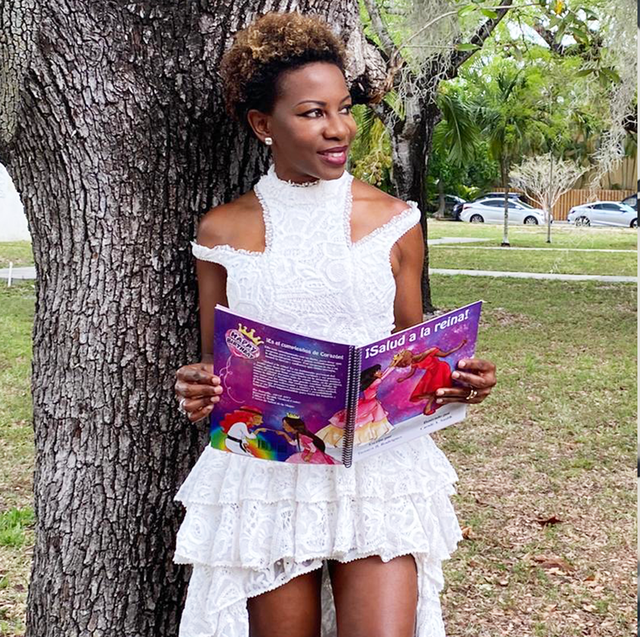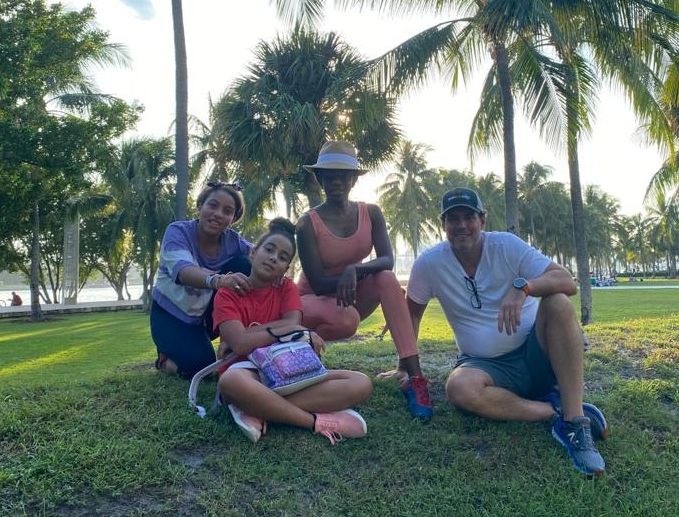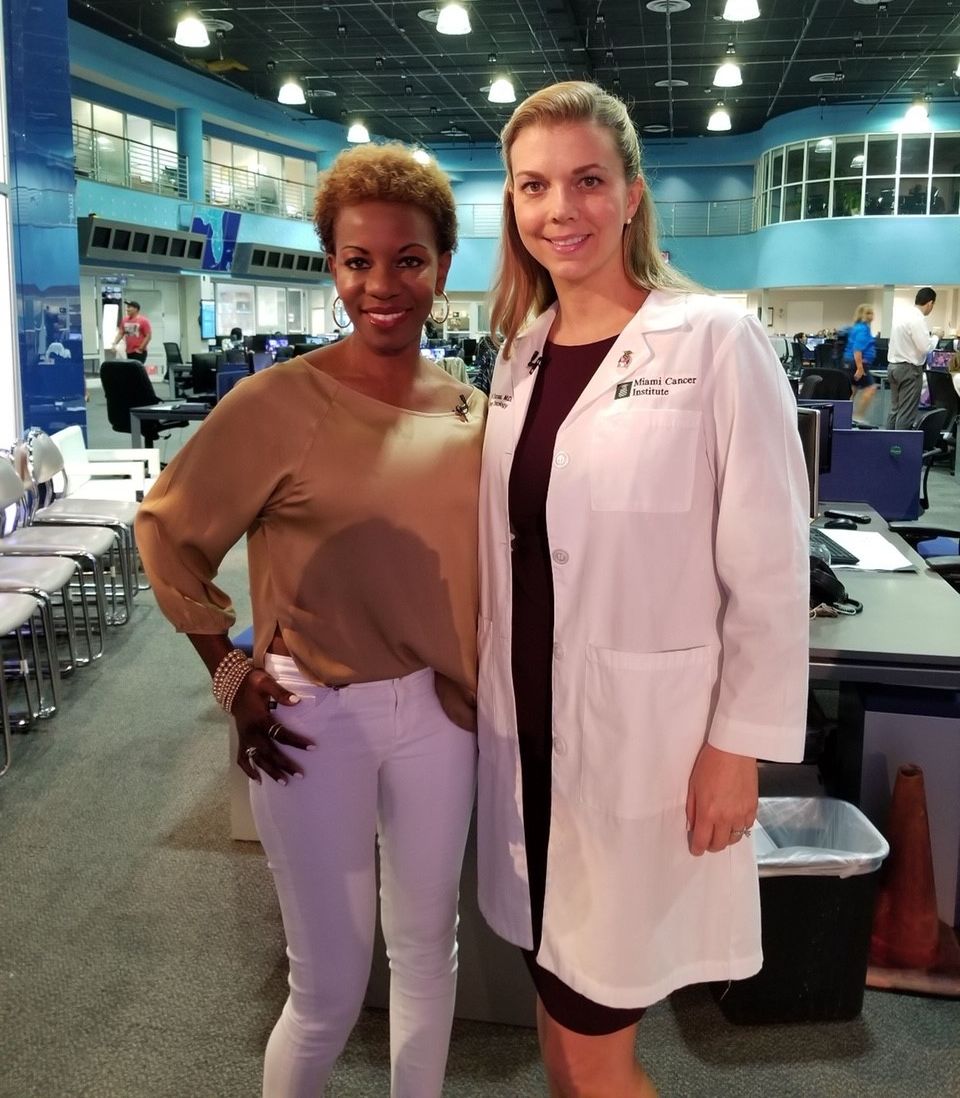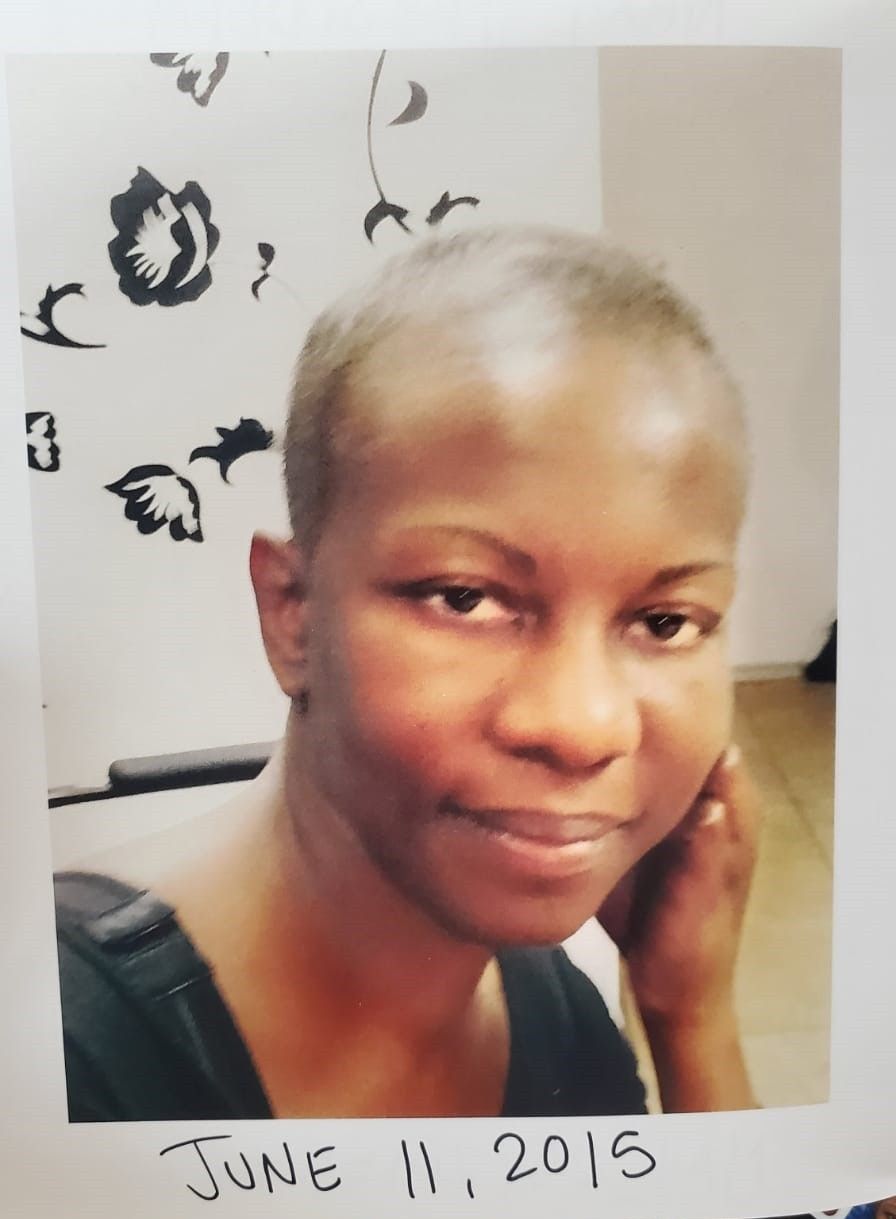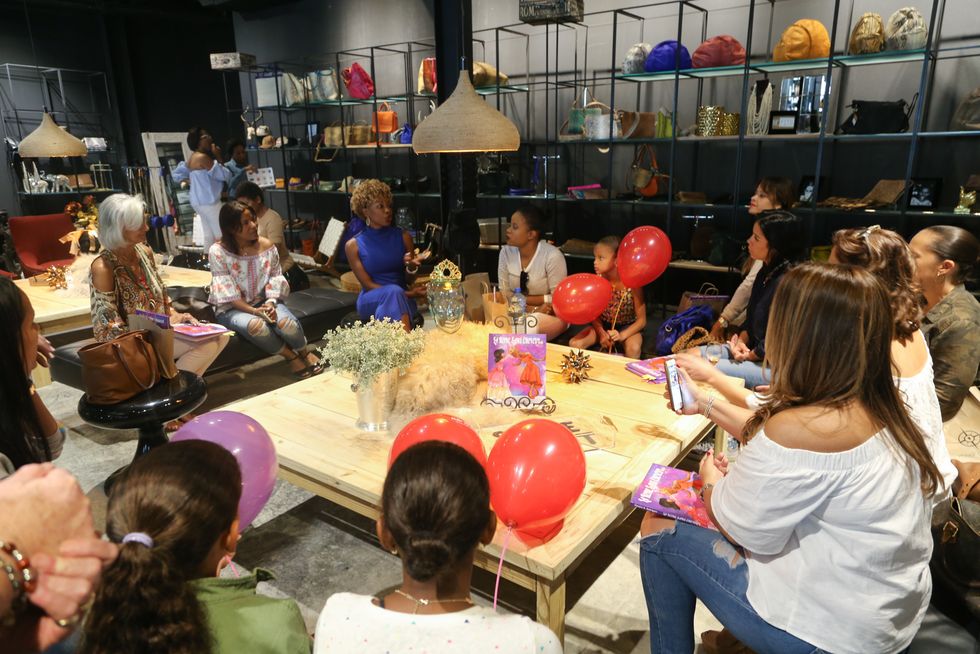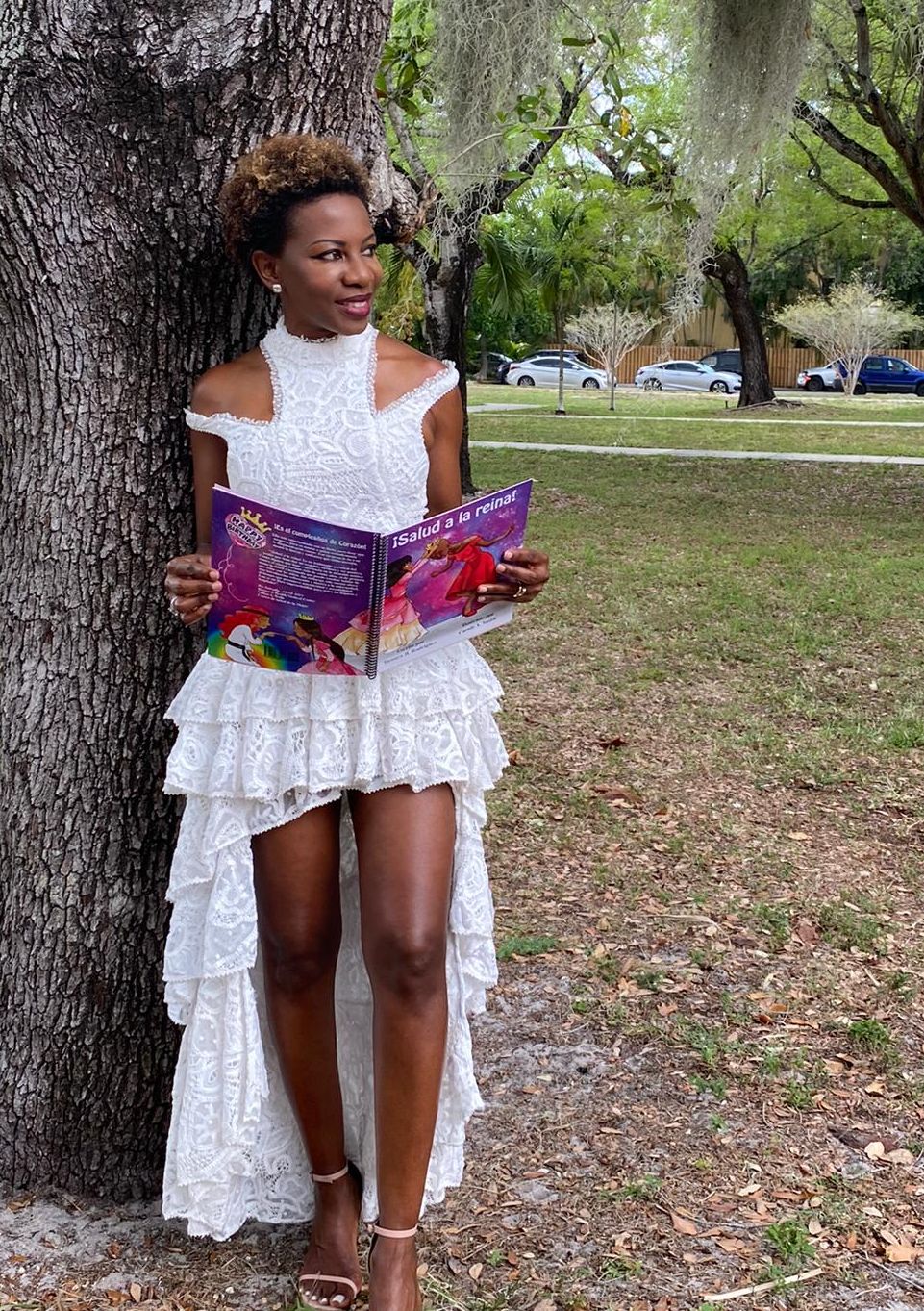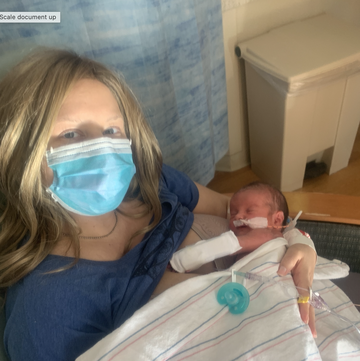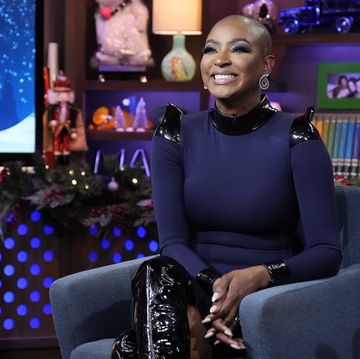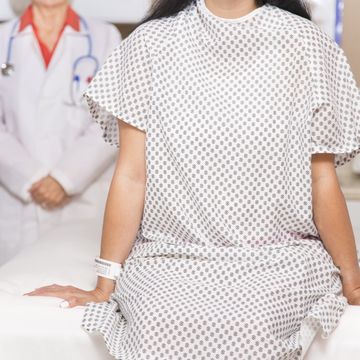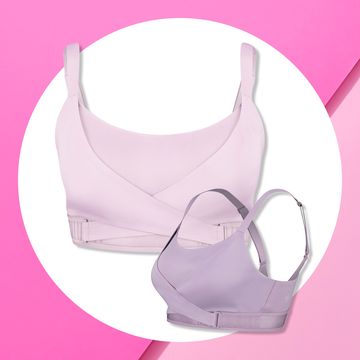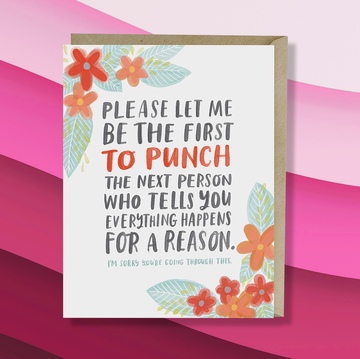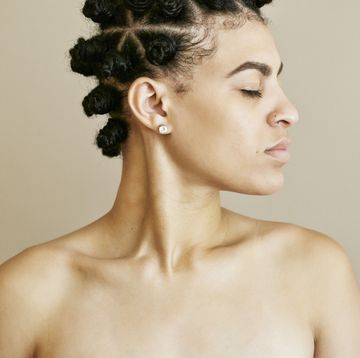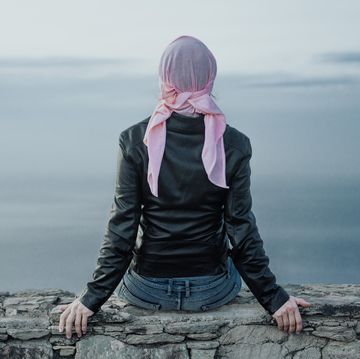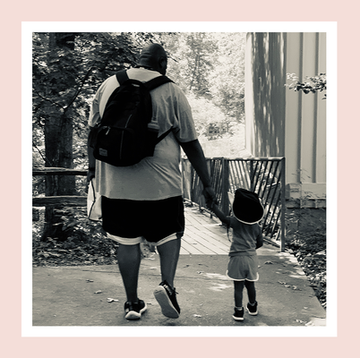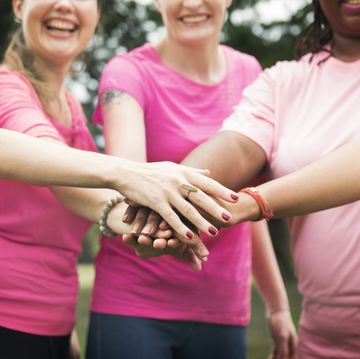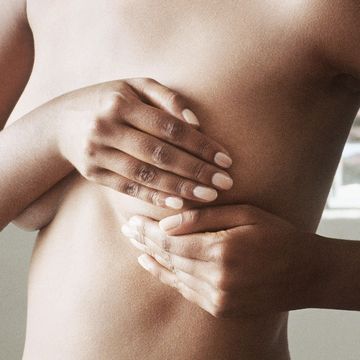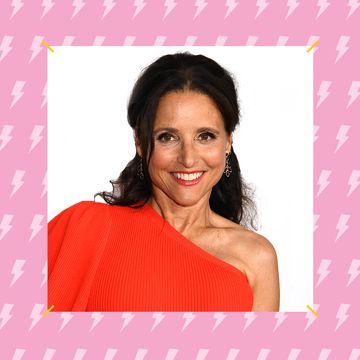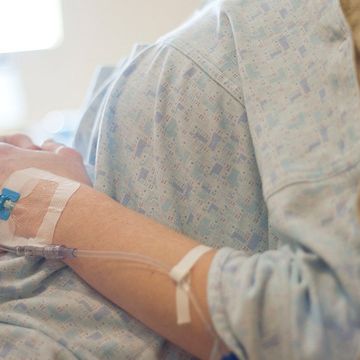I was relaxing on the couch one day in July 2014 when I felt a small lump on my breast. At first, I figured it was just a mosquito bite. At the time, I was the mother of two young daughters, an accountant, and a member of numerous nonprofit boards. I was always on the run, so it was easy for me to blow off such a minor symptom. A part of me told myself, Even if it is something, I don’t have time for it.
A few months later, as summer was coming to an end, the lump was still there. On a trip with my mother, I told her about the lump, adding that it was probably nothing. But as my mom and a pharmacist, she told me I needed to go see my doctor and get a mammogram right away. Her concern gave me a sense of urgency, so I scheduled an appointment.
When I finally went in to see my ob-gyn in October 2014, he said he didn’t think a mammogram was necessary. After all, I was only 35 years old. In general, breast cancer guidelines don't recommend that healthy women younger than 40 start getting mammograms for a variety of important reasons (cost, risk of false positives, the possibility of causing unnecessary anxiety). But ultimately it's up to the patient and their doctor to weigh the benefits and the downsides together. For me, I knew I needed the peace of mind. I’d also had a mammogram the year before after I got breast implants, and I had no family history of breast cancer.
At that point, I was insistent. I was headed out of town for another trip a couple of days later, and I just wanted to get the scan over with and have the peace of mind. I knew if I didn’t get a mammogram, my mom would keep bugging me about it. I also didn’t want to live with the guilt of not getting a cancer screening just because my health insurance wouldn’t cover it. My doctor finally agreed to it.
After my mammogram, the office called me the next day and told me I needed to come in for another mammogram and ultrasound. Two days after that, I got a biopsy. At that point, I was concerned. I canceled my trip.
On October 31st, 2014, one week after my mammogram, I was diagnosed with breast cancer.
It was a Friday, and I was about to leave work to decorate the house for a Halloween party when I got the call. The first thing the breast radiologist said was, “I’m so sorry,” and I knew.
I was shocked. I automatically thought I was going to die. I thought about my kids not having a mom, my parents not having a daughter. Then, for some odd reason, I felt overwhelming shame. What had I done wrong? I ate healthy. I was fit. I didn’t smoke. I scheduled all of my doctor’s appointments on time. Why did this happen to me?
Growing up in a traditional and conservative Haitian family, we didn’t talk about health issues that might make us look weak or vulnerable or cause people to think differently of us.
We didn’t say the word cancer, and even when my family members had "the C-word," they didn’t talk about it. But I didn’t want to feel ashamed about my diagnosis. It wasn’t my fault that I had cancer.
I called my husband and asked him to pick up our children from school, drove home, and cancelled the Halloween party. Our daughters were 4 and 5 years old at the time, and we had no idea how to express to them what was happening.
Many of my family members said there was no need for us to tell our kids since they were so young. But my husband and I had always been very communicative with them, so that didn’t feel right to us. They’d know something was wrong when I’d be in bed for days and when people would show up to the house with food and flowers. I didn’t want them to feel afraid or worried, so my husband and I decided to be honest with them. A few weeks after my diagnosis, we had them touch the lump and told them, “Mommy has a boo-boo.”
The good news was my cancer was found in very early stages. However, an Oncotype DX test, which analyzed how active certain genes were in my tumor, showed that there was a high likelihood my cancer would come back. Three weeks after my diagnosis, I underwent a double mastectomy. After that, my oncologist, Lauren Carcas, MD, of the Miami Cancer Institute, advised that I get chemotherapy and aggressive antiestrogen therapy.
As I went through treatment, I looked for books that would help my husband and I talk to our girls about cancer. But the characters never looked like me or my family.
I bought books from all over, but most of them were outdated with dull characters. My family is very diverse, but none of the characters looked like us. I knew nothing about writing a book, but I started to think that maybe I should.
A pivotal moment came when I began to lose my hair from chemotherapy in January 2015. Just a week and a half after my first chemotherapy infusion and three days before my youngest daughter’s 5th birthday, I started losing my hair. My daughter’s birthday was princess-themed, so she was going to dress up as a princess with a beautiful dress and long, flowing hair.
Shortly before her party, I had to tell her, “Baby, I’m really sorry, but Mommy is losing her hair. I took meds for the boo-boo, and I don’t want to go to the party like this, so I’m going to wear a wig.”
She looked at me with such deep disappointment and said, “I can’t believe you’re going to look like this.” It broke my heart, but I realized she was just a kid. What she was saying wasn’t coming from a bad place. I thought, This is a moment where you can share a lesson. I wanted my daughter to understand that hair does not define a person. I’m no less of a mom because I lost my hair and have to wear a wig. I’m no less of a mom because I have cancer.
This became the central theme for my first children’s book, Hair to the Queen!. Over the next several months, my daughters became instrumental in the writing of the story. It became a family project for us.
In April 2015, I completed chemotherapy and one year later, I had a hysterectomy to reduce the risk of my cancer coming back. In September 2016, my first book was published. It’s currently available in English, French, Haitian Creole, and Spanish.
Today, I’m an author and advocate for breast cancer awareness, and my little girls have become advocates too.
As of October 2020, it’s been six years since my breast cancer diagnosis, and I show no signs of recurrence. I’ve written two children’s books that empower parents, families, hospitals, and teachers to start the conversation with kids about cancer.
I remember when I was shopping around my book idea, some people told me it wouldn’t take because it wasn’t mainstream to have a Black character, let alone a bald Black woman on the cover of a book. But at the end of the day, I am a Black woman, I had cancer, and I was bald. It was important for me to decide that I wasn’t doing this for mainstream acceptance. Of course, I’d love for my story to be "mainstream," but that wasn’t my story, my truth, or what I wanted my girls to see.
My daughters had to deal with the realities of cancer at a young age, but I feel confident that the lessons I hoped to impart to them have reached them in a powerful way. Now, they love to wear their pink bows and shirts and spread the word about the importance of breast cancer screenings.
My takeaway from this experience is to know your body and be your own health advocate. If you see or feel something is not right, go see a doctor. If the doctor dismisses your concerns, go see another for a second opinion. Take control of your body and concerns early, get to know your family history, and go in for regular screenings. If you don’t have insurance, ask a health professional or social worker how you can get a mammogram for free or at a reduced cost—because we know that early detection saves lives. I’m an example of that.
